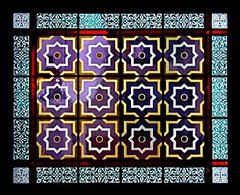Hospitality in the Arab world is second to none, and nowhere is it better expressed than in the age-old custom of serving freshly-brewed coffee or mint tea to every guest, whether the gathering be business or social.Essential to any cooking in the Arabian Peninsula is the concept of hospitality. Meals are generally large family affairs, with much sharing and a great deal of warmth over the dinnertable. Formal dinners and celebrations generally entail large quantities of lamb, and every occasion entails large quantities of Arabic coffee.In an average Arab gulf state household, a visitor might expect a dinner consisting of a very large platter, shared commonly, with a vast mountain of rice, incorporating lamb or chicken, or both, as separate dishes, with various stewed vegetables,sometimes with a tomato sauce. Most likely, there would be several other items on the side. Tea would certainly accompany the meal,as it is almost constantly consumed. Coffee would be included as well.There are many regional differences in Arab cuisine. For instance mujadara which is a rice lentil dish in Syria or Lebanon is different from mujadara in Jordan or Palastine or Egypt.Some dishes such as mansaf (the national dish of Jordan) are native to certain countries and rarely if ever make an appearance in other countries.Cinnamon is used in meat dishes as well as in sweets such as Baklava.Other desserts include variations of rice pudding and fried dough. Ground nut mixtures are common fillings for such treats. Saffron is used in everything, from sweets, to rice, to beverages. Fruit juices are quite popular in this often arid region.
The foreigner who takes time to learn and experiment with this excellent cuisine will be immediately won over and rewarded with many wonderful surprises. Arabic food can rival any international gastronomy for originality and good taste, and, because it basically comprises simple, natural and easily digested foodstuffs, it ranks high in nutritional value with today's fitness-conscious society.
Photos-clockwise:Mammoul,Manakeesh,Safiha,Maklouba,Appetizers,Dips,Falafel .











